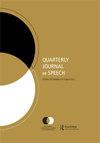The U.S. American left and reverse moral exceptionalism: when do villains become heroes?
IF 1.3
2区 文学
Q2 COMMUNICATION
引用次数: 0
Abstract
ABSTRACT This article takes the assassination of Qasem Soleimani as a case study that manifests the schism between the realities of those in revolutionary struggle and those on the U.S. American left who might gather in solidarity with them. I explicate “reverse moral exceptionalism” as a nationalistic tendency to insist on oneself as central to every event of significance on the world stage and which positions the United States (U.S.) as a singular source of evil in the world. Based on an ethnocentrism that approaches the world from a position of dominance, reverse moral exceptionalism saturates the space available for others and induces the inability to listen to the testimony of others. Cartesian “either-or” logics situate all non-white state actors as inherently colonized and by extension, all colonial brown actors emerge as apolitical victims. I argue that when whiteness is only understood in racially provincial terms, it distorts understandings of inter-racial collusion in the transnational context. I attend to the unlikely ways in which whiteness and its concomitant forms of exceptionalism permeate U.S. American nationalist subjectivities, setting the groundwork for an anti-colonial discourse that paradoxically justifies oppressive regimes and brings about indifference to grassroots revolutionary discourse and the micropolitics of resistance.美国左派与反道德例外论:恶人何时成为英雄?
本文章由计算机程序翻译,如有差异,请以英文原文为准。
求助全文
约1分钟内获得全文
求助全文
来源期刊

Quarterly Journal of Speech
COMMUNICATION-
CiteScore
1.80
自引率
36.40%
发文量
39
期刊介绍:
The Quarterly Journal of Speech (QJS) publishes articles and book reviews of interest to those who take a rhetorical perspective on the texts, discourses, and cultural practices by which public beliefs and identities are constituted, empowered, and enacted. Rhetorical scholarship now cuts across many different intellectual, disciplinary, and political vectors, and QJS seeks to honor and address the interanimating effects of such differences. No single project, whether modern or postmodern in its orientation, or local, national, or global in its scope, can suffice as the sole locus of rhetorical practice, knowledge and understanding.
 求助内容:
求助内容: 应助结果提醒方式:
应助结果提醒方式:


